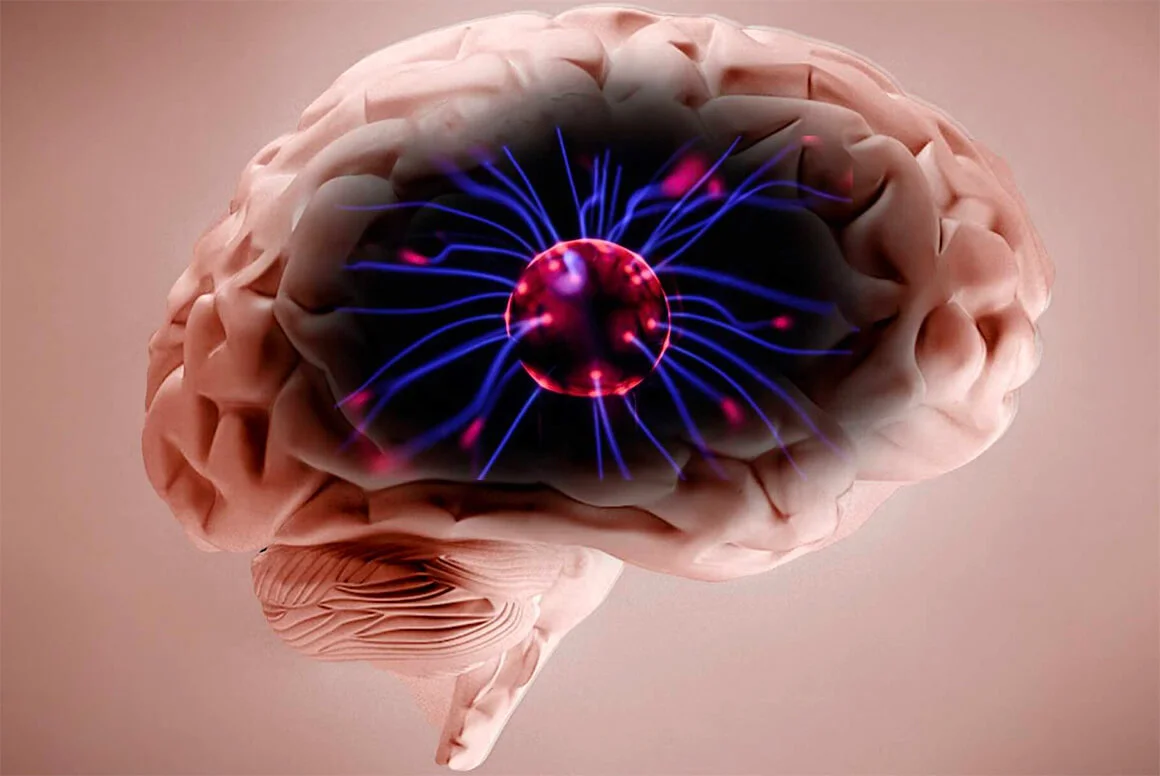Quantum psychology is a relatively new and still developing field that attempts to combine the principles of quantum mechanics with psychological and cognitive theories.
It proposes using quantum principles, such as superposition and wave functions, to explain complex and often unpredictable aspects of human thinking and behavior that are difficult to explain using classical probability theory and logic.
For example, quantum psychology can be used to analyze contradictory and ambivalent behavior, decision-making processes, perception, and other cognitive processes.
However, it should be noted that this field is a subject of discussion and criticism, and many of its aspects are still actively being researched.

A Brief Overview of the History of Quantum Psychology
Quantum psychology is a relatively new field, with its roots tracing back to the late 20th century.
One of the main researchers in this area is Robert Anton Wilson, who developed ideas about quantum psychology in his works during the 1980s and 1990s. Wilson suggested rethinking our understanding of consciousness and reality through the lens of quantum mechanics, proposing that many psychological processes could be explained using quantum principles.
In the following decades, these ideas continued to evolve, and various researchers began applying concepts from quantum mechanics to different areas of psychology. For instance, in the field of cognitive psychology, researchers started using quantum models to explain phenomena such as contradictory and ambivalent behavior, and decision-making processes.
Nevertheless, quantum psychology remains a relatively young and developing field, with many aspects still actively being researched and debated. A particularly important question is whether the application of quantum principles to psychology is appropriate and whether they can indeed lead to a more comprehensive understanding of complex psychological processes.

The Concept of Quantum Mechanics in Psychology
The concept of quantum mechanics in psychology is based on the assumption that some aspects of human behavior and thinking can be better understood and explained when viewed through the principles of quantum mechanics.
Such principles include, for example, the uncertainty principle, superposition of states, and the interaction between observer and observed. These principles are applied to explain phenomena such as ambivalence, contradictions in decision-making, and the unpredictability of behavior.
Applying quantum mechanics to psychology leads to a new vision of psychological processes. Instead of the classical approach, which assumes that thinking and behavior can be precisely measured and predicted, quantum psychology offers a model where multiple, interconnected states are possible, and where observation can influence the outcome.
This can provide a more flexible and dynamic model of psychology, allowing for better understanding of the complex and often unpredictable aspects of human thinking and behavior.
Explanation of Key Quantum Mechanics Principles Applicable to Psychology
Several key principles of quantum mechanics can be applied to psychology to explain complex psychological processes:
- Superposition: In quantum mechanics, particles can exist in multiple states simultaneously until measurement occurs. In psychology, this can be applied to thinking and decision-making processes, where we consider various possibilities simultaneously, and only after making a decision does the superposition collapse into one definite state.
- Quantum Entanglement: In quantum mechanics, two or more particles can become entangled, meaning that the state of one particle is closely linked to the state of another particle, even at great distances. In psychology, this principle can be used to explain the interconnection between different aspects of thinking and perception, such as emotions and cognitive processes.
- Wave Function and Wave Function Collapse: In quantum mechanics, a system’s state is described by a wave function, representing the probabilities of possible states. The collapse of the wave function occurs when observation or measurement “fixes” one of the possible states. In psychology, this can be applied to decision-making and belief formation, where we move from uncertainty to a definite choice or belief.
- Heisenberg’s Uncertainty Principle: In quantum mechanics, it is impossible to simultaneously measure two related quantities, such as a particle’s position and velocity, with precision. In psychology, this principle can be used to explain that some aspects of our thinking and perception are uncertain or unpredictable.
- Observer Effect: In quantum mechanics, the act of observation can influence the measured characteristics of a system. In psychology, a similar principle can be applied to explain how our perception and interpretation of events can change our experience of these events. For example, the observer’s expectations and biases can influence how they perceive and interpret information.
- Complementarity: This is a principle in quantum mechanics where objects can exhibit both wave-like and particle-like properties depending on the experimental context. In psychology, this principle can be used to describe the dualism between conscious and unconscious processes, or between emotional and rational elements of thinking.
It is important to note that applying quantum mechanics principles to psychology does not imply that the brain or thinking works according to quantum laws in a literal sense. It is more of a metaphorical application, proposing new approaches to understanding the complex and often unpredictable moments of human thinking and behavior.
Quantum Probabilities and Their Relation to Decision-Making and Perception Formation
In the context of quantum mechanics, quantum probabilities refer to the probabilities of various possible states of a system, described by the wave function. When these principles are applied to psychology, they can offer a new approach to understanding decision-making processes and perception formation.
In classical probability theory, the decision-making process is usually viewed as a sequential elimination of alternatives until one choice remains. However, in real life, people often consider several possibilities simultaneously and may switch between them before making a final decision. A more comprehensible example might be the concept of quantum superposition, where all possible options exist simultaneously until the wave function collapses—the final decision.
Similarly, quantum probabilities can be applied to the process of perception formation. Instead of viewing perception as static and unchanging, quantum psychology suggests that our perception can be dynamic and variable, similar to the state of quantum superposition. Perception can change depending on context, experience, and observation, akin to how the wave function collapses upon measurement.
It should be acknowledged that all these ideas are subjects of active research and discussion, and much is still unknown in this field.

Quantum Cognitive Science
Quantum cognitive science or cognitive science is an interdisciplinary field of research that applies the principles of quantum mechanics to understanding cognitive processes such as decision-making, perception, and information management. It is considered a subdivision of quantum psychology but has a narrower focus, concentrating on those aspects of cognitive science that can be explained using quantum principles. This includes modeling nonlinear and probabilistic processes in thinking and perception, as well as studying the influence of observation and context on cognitive processes.
The main ideas of quantum cognitive science are based on the principles of superposition, the interaction between observer and observed, quantum entanglement, and the uncertainty principle. These principles allow for more flexible and dynamic models of cognitive processes than those proposed within classical cognitive science. However, it should be noted that quantum cognitive science is in the developmental stage, and many of its proposals and conclusions require further study and verification.
The Relationship Between Quantum Psychology and Cognitive Science
Quantum psychology and cognitive science are closely related as both fields deal with the study of thinking and perception processes. While cognitive science traditionally uses models based on classical logic and probability theory, quantum psychology introduces a new element by applying principles and models from quantum mechanics to describe cognitive processes.
Quantum psychology can offer cognitive science new approaches to modeling complex cognitive processes that are difficult to explain using classical models. This includes processes such as decision-making, perception, and information processing, which may have nonlinear and probabilistic aspects and depend on context and observation.
At the same time, quantum psychology can benefit from cognitive science by using its research and theories for a deeper understanding of the applicability of quantum models to real cognitive processes. Additionally, cognitive science can offer research methods and experimental designs that help test and refine quantum models in psychology.
As a result of this relationship, the subfield of quantum cognitive science has emerged, combining the approaches and methods of both fields to study cognitive processes.
Application of Quantum Models to Describe Cognitive Processes
Quantum models can be useful tools for describing cognitive processes, especially those that are difficult to explain using classical models. Here are several ways they can be applied:
- Decision-Making and Information Processing: Quantum models can better explain how people make decisions under uncertainty or when dealing with conflicting information. They can describe the decision-making process as a state of quantum superposition, where all possible options are considered simultaneously until the “collapse” of the wave function occurs and a final decision is made.
- Perception and Attention: Quantum models can also help describe the dynamic and context-dependent aspects of perception and attention. For example, they can explain how perception can change depending on observation or context, similar to how the states of a quantum system can change upon measurement.
- Social Interaction and Communication: Quantum models can be applied to describe complex social interactions and communication, using principles such as quantum entanglement to explain how interaction and mutual understanding can arise between people.
- Memory and Learning: Quantum models can offer new approaches to understanding the processes of memory and learning, explaining how information can be stored and processed in a nonlinear and probabilistic manner.

Quantum Psychology: Examples of Applications
Quantum psychology can be used in social psychology to study phenomena of interaction and communication. Quantum mechanical principles, such as entanglement and superposition, can be applied to model complex social interactions and communication, such as mutual understanding between people in groups, negotiation processes, or behavior in social networks. These models allow for a better understanding of how individual thoughts and feelings are interconnected and change in a social context.
Quantum psychology is also useful in clinical psychology and psychotherapy. By using quantum mechanical principles, therapists can describe and analyze psychological states and processes on a deeper level, leading to new approaches in treatment and support. For example, principles of superposition and uncertainty help understand and describe complex dynamic processes such as changes in emotional states, consciousness, and internal dialogue.
Quantum Models of Perception and Decision-Making
Quantum models of perception and decision-making are a growing area in psychology and cognitive science. They apply the principles of quantum mechanics to explain complex and sometimes paradoxical aspects of perception and decision-making. Here’s how they work:
- Quantum Models of Perception: Perception is a complex process involving the interpretation and processing of sensory information. Quantum models propose to describe this using the principle of quantum superposition, where an object or event can exist in multiple states simultaneously until observed. This helps explain how our perception changes depending on context or observation.
- Quantum Models of Decision-Making: Decision-making is a process where we choose one of several possible courses of action. Classical decision-making models are based on the assumption that people act rationally and aim to maximize their benefit. However, in reality, the decision-making process is often complex and nonlinear. Quantum models describe this using the principles of superposition and uncertainty, explaining our ability to consider various options simultaneously and showing how our final decision can be influenced by various factors and change over time.
It is important to note that these models do not imply that the brain operates on a quantum level. Instead, they use quantum mechanical principles as a metaphorical tool to describe complex psychological processes.
Application of Quantum Principles in Social and Clinical Psychology
In social and clinical psychology, the principles of quantum mechanics can be used to represent and analyze complex psychological phenomena and processes.
In social psychology, using quantum principles helps explain complex dynamic processes such as interactions between individuals and groups. For example, principles of quantum superposition and entanglement can be applied to model social interactions where one individual’s behavior is related to and influences others’ behavior.
Quantum models can also be used to explain some social paradoxes, such as the order effects and negativity bias in social perception. These effects show that people’s opinions can change depending on the order in which information is presented and how it is related to other information.
In clinical psychology, the principles of quantum mechanics can be used to represent complex psychological states and processes such as mood changes, internal dialogue, and consciousness. For example, the principle of superposition helps explain a patient’s ability to experience mixed or contradictory feelings simultaneously.
Additionally, quantum psychology offers new approaches to psychotherapy. Quantum principles can be used to develop strategies that help people better manage their emotions and change their views or beliefs.
Using Quantum Psychology to Understand Paradoxes in Psychology
Quantum psychology provides an innovative approach to understanding various paradoxes in psychology. Principles of quantum mechanics, such as superposition, entanglement, and uncertainty, can be applied to model and describe complex phenomena and contradictory results that are difficult to explain with classical psychological theories. Here are a few examples:
- The Paradox of Choice: Classical economic theory suggests that more choices should lead to better satisfaction of needs. However, in reality, an excess of choices can lead to decreased satisfaction and increased stress. Quantum psychology helps explain this paradox by using the principles of superposition and uncertainty to describe states of consciousness that can lead to such unexpected results.
- The Decision-Making Paradox: People often exhibit irrational behavior when making decisions, especially in uncertain situations. Quantum psychology can use principles of quantum mechanics to represent contradictory and inconsistent decision-making strategies that explain phenomena such as cognitive biases, status quo effects, and preference reversals.
- Social Paradoxes: In social psychology, there are many paradoxes related to group dynamics, stereotypes, and prejudices. Quantum psychology offers new insights into understanding these paradoxes by using the principle of entanglement to describe the interconnectedness between individuals and groups and showing how they can influence each other.
Overall, using quantum psychology to understand paradoxes in psychology allows scientists and practitioners to present a more comprehensive and complex picture of human behavior. This can lead to new strategies and methods in fields such as psychotherapy, social work, and other areas where a deep understanding of psychological processes is required.

Criticism and Controversies in Quantum Psychology
Like any new and revolutionary theory, quantum psychology has faced its share of criticism and controversies within the academic community.
One of the primary aspects of criticism is the question of how appropriate it is to apply the principles of quantum mechanics, originally developed to describe the micro-world, to psychological processes and behavior. Critics point out that psychological processes and phenomena do not adhere to the same laws and principles as quantum particles, and that using the terminology and concepts of quantum mechanics can lead to misinterpretations and misconceptions.
Another aspect of criticism is the lack of experimental confirmation for some of the assumptions in quantum psychology. While quantum models may offer elegant theoretical explanations for some psychological phenomena, the lack of concrete experiments capable of testing and confirming these models remains a problem. This raises doubts about the scientific basis and effectiveness of quantum psychology.
Challenges in Implementing Quantum Principles in Psychology
Implementing quantum principles in psychology has encountered several problems and challenges. Here are some of them:
- Complexity of Understanding Quantum Principles: Quantum mechanics is a complex and unfamiliar field that requires deep and precise understanding. Many psychologists do not initially possess sufficient knowledge in this area, which complicates the understanding and application of quantum principles.
- Defining and Measuring Quantum States in Psychology: One of the fundamental principles of quantum mechanics is the superposition of states. However, defining and measuring such states in psychology is a complex task.
- Lack of Experimental Confirmation: Many quantum models of psychological processes remain theoretical and require further experimental research for confirmation.
- Risk of Misinterpretation: Using quantum terminology and concepts can lead to misinterpretations and misconceptions if not used with proper caution and understanding.
- Lack of Recognition in the Academic Community: Despite growing interest, quantum psychology has not yet gained wide recognition in the academic community. This makes it difficult to obtain funding and support for conducting research and further developing this field.
Overall, while quantum psychology offers promising and innovative approaches, its implementation and application in psychology remain complex and multifaceted tasks.
A Critical View of the Methodology and Theoretical Foundations of Quantum Psychology
Quantum psychology, like any new research area, undergoes critical reflection and analysis. Despite its promising prospects, there are certain aspects of its methodology and theoretical foundations that provoke discussion and criticism.
- Theoretical Foundations: Quantum psychology is based on principles of quantum mechanics that were developed to describe the micro-world and attempts to apply them to psychological processes. This raises doubts about how suitable these principles are for describing complex cognitive processes and human behavior. There is a risk of transferring concepts from one field to another without proper understanding of their context and limitations.
- Methodological Problems: One of the main methodological problems is the lack of clear and consistent ways to measure and evaluate quantum states in psychology. Without this, it is difficult to conduct empirical research and test theoretical assumptions.
- Lack of Experimental Research: Many of the proposals in quantum psychology remain at the level of theoretical models and hypotheses. They require deeper and more extensive experimental research for confirmation and development.
- Criticism from the Academic Community: Despite some interesting studies and results, quantum psychology has not yet gained wide recognition in the academic community. This slows its development and implementation.
While quantum psychology represents an innovative and potentially revolutionary approach to understanding psychology, it also requires deeper, critical examination of its theoretical foundations and methodology.
To make quantum psychology a full-fledged and recognized field of psychology, more extensive research is needed, as well as a detailed study and verification of its core concepts and proposals. Developing clear and representative methods for measuring quantum states in psychology is also essential.
This will not only help to confirm or refute current hypotheses and theories but also make a significant contribution to the development of psychology in general, expanding its understanding and representations of the human psyche and behavior.

Prospects for the Development of Quantum Psychology
Despite the challenges and criticism, quantum psychology represents a field with significant potential and intriguing prospects. It opens new horizons for understanding complex psychological processes, including perception, decision-making, social behavior, and more. With the right approach and further development, it can provide new tools for research and practical application in psychology.
In the future, we expect deeper research in the field of quantum psychology, including experimental work to test and develop theoretical assumptions. It is also possible that new approaches and techniques in clinical psychology, psychotherapy, and counseling, based on quantum principles, will emerge.
This includes new ways of understanding and treating mental disorders, as well as new approaches to personal growth and development. Moreover, quantum psychology can foster the development of interdisciplinary dialogue between psychology, physics, neuroscience, and other scientific fields.
Current State of Research in Quantum Psychology
Research in the field of quantum psychology is in its early stages. This field emerged relatively recently and has not yet gained wide recognition in the scientific community.
Researchers from various disciplines, including psychology, physics, and neuroscience, have begun applying quantum principles to study cognitive processes and psychological phenomena, such as decision-making, perception, and social behavior. These studies are currently focused on forming basic concepts and creating theoretical models.
For example, one important research topic is the use of quantum probabilistic models to explain paradoxes in decision-making and perception that classical theories struggle to explain. These include phenomena such as violations of the principle of independence and violations of the principle of subjectivity, which are commonly observed in decision-making experiments.
However, despite some promising results, empirical confirmation and experimental testing of quantum models still require significant effort. Most research so far is limited to theoretical discussions and modeling.
Additionally, it should be noted that quantum psychology faces several methodological and philosophical challenges that need to be addressed for further progress. This includes questions about the nature and measurement of quantum states in psychology and how quantum principles can be applied to psychological processes.
Overall, quantum psychology represents a promising and intriguing direction for research. It opens new pathways for understanding complex psychological processes and can potentially lead to new insights into some of the most challenging questions in psychology. However, realizing its full potential requires more research and addressing existing philosophical and methodological issues.
Potential Directions for Future Research and Practical Application
Despite its relative novelty, quantum psychology opens numerous potential directions for future research and practical application.
- In-Depth Study of Quantum Principles in Psychology: Research can continue in the direction of further studying and experimentally testing quantum principles and models in psychology, developing new quantum models of cognitive processes, and conducting experimental studies to test these models.
- Application in Clinical Psychology: We can expect the development of new approaches in clinical psychology and psychotherapy based on quantum principles. This includes new ways of understanding and treating mental disorders, as well as new approaches to personal growth and development.
- Application in Social and Organizational Psychology: Quantum models can be used to study complex social and organizational processes, such as group interaction, decision-making in organizations, and leadership.
- Interdisciplinary Research: Quantum psychology can foster the development of interdisciplinary dialogue between psychology, physics, neuroscience, and other fields of knowledge. This will lead to new cross-disciplinary research and mutual understanding between different disciplines.
- Development of New Methodologies: Quantum psychology can also contribute to the development of new research methods in psychology, especially in the area of measuring and modeling psychological processes.
- Education and Training: Finally, quantum psychology can contribute to education and training in psychology by introducing new concepts and offering fresh perspectives on traditional psychological topics. This will allow for the development of new courses and training programs to help future psychologists better understand and use quantum principles in their professional activities.
In conclusion, quantum psychology offers numerous opportunities for future research and practical application. At the same time, it presents several challenges related to the need for a deeper understanding of quantum principles and their applicability in psychology. Nevertheless, the prospects for the development of this field are highly encouraging.




